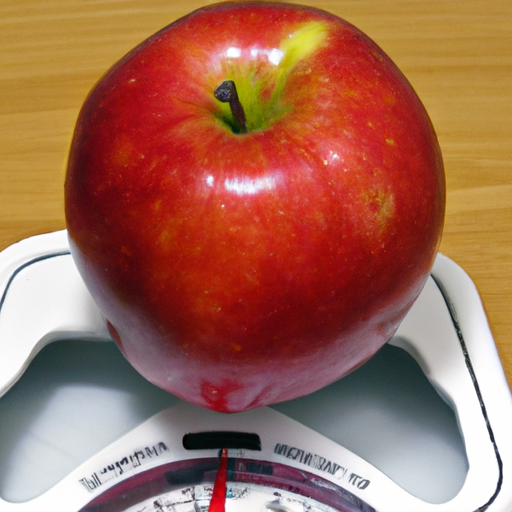We all want to lead a healthy lifestyle and maintain a balanced diet, but sometimes it’s easier said than done. In our quest for vitality, we often stumble upon common diet pitfalls that can derail our progress. From succumbing to late-night snacking temptations to mindlessly indulging in sugary treats, these pitfalls can sabotage our goals. In this article, we will uncover some of the most prevalent diet pitfalls that many of us fall victim to and provide practical tips to help avoid them. So join us as we navigate the treacherous waters of diet pitfalls and pave our way to a healthier, more fulfilling life.
Review contents
Skipping Meals
Effects of skipping meals
Skipping meals can have a variety of negative effects on our bodies and overall well-being. When we skip meals, our blood sugar levels can drop, leading to feelings of fatigue, irritability, and difficulty concentrating. Additionally, skipping meals can disrupt our body’s natural hunger and fullness cues, making it more difficult to maintain a healthy relationship with food.
Impact on metabolism
Skipping meals can also have a negative impact on our metabolism. Our bodies rely on a steady supply of nutrients to function properly, and when we deprive ourselves of regular meals, our metabolism can slow down as a result. This can make weight loss more challenging in the long run and may even lead to weight gain over time.
Methods to avoid skipping meals
To avoid skipping meals, it is important to prioritize meal planning and preparation. Setting aside time each week to plan out our meals and snacks can help ensure that we have nutritious options readily available. Additionally, keeping healthy snacks on hand, such as fruits, nuts, or yogurt, can help prevent the temptation to skip meals when we are on-the-go or feeling pressed for time. Finally, it can be helpful to establish a regular eating routine and listen to our body’s hunger signals to make sure we are fueling ourselves adequately throughout the day.
Overly Restrictive Diets
Dangers of overly restrictive diets
Engaging in overly restrictive diets can have several dangers and negative consequences for our health. These diets often involve severely limiting certain food groups or drastically reducing overall caloric intake. While they may initially result in weight loss, they can also lead to nutrient deficiencies, muscle loss, and a decreased metabolism. Additionally, overly restrictive diets can be mentally and emotionally taxing, contributing to feelings of deprivation and potentially leading to disordered eating patterns.
Long-term sustainability
One of the major pitfalls of overly restrictive diets is their lack of long-term sustainability. While they may produce quick results in terms of weight loss, these diets are often not feasible or sustainable for the long haul. Our bodies need a balanced and varied diet to thrive and function optimally. By denying ourselves certain foods or depriving ourselves of sufficient energy, we set ourselves up for a cycle of restriction and overindulgence that can be difficult to break.
Healthy alternatives
Instead of engaging in overly restrictive diets, it is important to focus on adopting a balanced and sustainable approach to eating. This means nourishing ourselves with a wide variety of whole foods, including fruits, vegetables, lean proteins, whole grains, and healthy fats. Striving for moderation and portion control, rather than elimination, allows us to enjoy a diverse range of foods while still achieving our health and wellness goals. It is also important to prioritize listening to our body’s hunger and fullness cues and to cultivate a positive and compassionate mindset towards ourselves and our relationship with food.
Relying on Fad Diets
Understanding fad diets
Fad diets are characterized by their popularity and promises of quick and dramatic weight loss. They often involve strict rules, restrictions, or the endorsement of certain “miracle” foods or supplements. Examples of fad diets can include the ketogenic diet, the cabbage soup diet, or the grapefruit diet. While these diets may garner attention and even produce short-term results, they are not sustainable or based on sound scientific principles.
Why fad diets don’t work
Fad diets typically don’t work because they are not rooted in evidence-based nutrition principles. They often promote drastic calorie deficits or severely restrict certain macronutrients, leading to an imbalance in nutrient intake. Additionally, fad diets often fail to address the psychological and emotional aspects of eating, which are crucial for long-term success. Many people who follow fad diets experience a cycle of initial weight loss followed by weight regain once they return to their regular eating patterns.
Choosing evidence-based approaches
Instead of relying on fad diets, it is important to choose approaches to eating and weight management that are based on scientific research and individual needs. This means focusing on consuming a wide variety of nutrient-dense foods, engaging in regular physical activity, and cultivating a positive and balanced mindset towards food and body image. Consulting with a registered dietitian can be helpful in developing a personalized and evidence-based approach to nutrition and overall wellness.
Unrealistic Expectations
Setting realistic goals
Setting realistic goals is crucial when it comes to our health and well-being. Unrealistic expectations, such as expecting rapid weight loss or drastic body transformations, can lead to feelings of frustration, disappointment, and even a sense of failure. It is important to remember that achieving and maintaining a healthy weight and lifestyle is a gradual process that requires patience, consistency, and sustainable habits.
Understanding healthy weight loss
Healthy weight loss is generally considered to be a gradual and sustainable loss of 1-2 pounds per week. This can be achieved through a combination of balanced eating, regular physical activity, and behavior modifications. It is important to focus on overall health and well-being rather than solely on a number on the scale. Incorporating lifestyle changes that we enjoy and can maintain long-term is key to achieving and sustaining a healthy weight.
Avoiding crash diets
Crash diets, which promise rapid weight loss through severe calorie restriction, are not a sustainable or healthy approach to weight loss. They often result in muscle loss, nutrient deficiencies, and a slowed metabolism. Instead of resorting to extreme measures, it is important to focus on making gradual changes to our eating and activity habits that promote long-term health and sustainable weight management.
Emotional Eating
Identifying emotional eating triggers
Emotional eating refers to the practice of using food as a way to cope with or soothe emotional distress. It is important to identify our personal triggers for emotional eating in order to develop healthier coping mechanisms. Common triggers can include stress, boredom, loneliness, sadness, or even feelings of happiness. Taking the time to reflect on our emotions and the circumstances that lead to emotional eating can help us become more aware and mindful of our eating habits.
Seeking healthier coping mechanisms
Instead of turning to food as our primary source of comfort, it is important to seek out alternative and healthier coping mechanisms. Engaging in regular physical activity, practicing mindfulness or meditation, seeking support from friends or loved ones, or engaging in a creative outlet can all be effective ways to manage emotions without relying on food. Building a toolbox of alternative coping strategies can help us break free from the cycle of emotional eating and develop a more balanced relationship with food.
Developing a balanced mindset
Developing a balanced mindset towards food and our bodies is crucial when it comes to overcoming emotional eating. This involves challenging and reframing negative thoughts and beliefs we may have about food, weight, and body image. Focusing on self-compassion, body positivity, and intuitive eating principles can help us develop a more positive and healthy relationship with food, which in turn can alleviate emotional eating tendencies.
Lack of Portion Control
Importance of portion control
Portion control is essential for maintaining a balanced and healthy diet. Consuming appropriate portion sizes helps us meet our nutritional needs while preventing overeating and weight gain. When we consistently consume larger portions than necessary, it can be easy to consume excess calories, leading to weight gain and potential health issues.
Methods to practice portion control
Practicing portion control can be achieved through several strategies. One method is using smaller plates and bowls to visually create the perception of a fuller plate. Another approach is to measure or weigh out appropriate portions of food using a food scale or measuring cups. Additionally, mindful eating techniques, such as eating slowly, savoring each bite, and paying attention to our body’s hunger and fullness signals, can help us become more aware of our portion sizes.
Meal planning and tracking
Meal planning and tracking our food intake can also contribute to portion control. Planning our meals and snacks ahead of time allows us to portion out appropriate amounts of food in advance, making it easier to stick to reasonable serving sizes. Keeping a food diary or using a mobile app to track our daily intake can provide valuable insight into our eating habits and help us identify areas where portion control may be lacking.
Ignoring Nutritional Needs
Understanding the importance of essential nutrients
Ignoring our nutritional needs can have serious implications for our health and well-being. Our bodies require a range of essential nutrients, including vitamins, minerals, carbohydrates, proteins, and fats, to function properly. When we neglect these nutritional needs, we may experience decreased energy levels, compromised immune function, poor concentration, and an increased risk of chronic diseases.
Balancing macronutrients
To ensure that we are meeting our nutritional needs, it is important to focus on balancing our intake of macronutrients. This means consuming an appropriate amount of carbohydrates, proteins, and fats. Carbohydrates provide energy, proteins support muscle growth and repair, and fats are essential for hormone production and absorption of certain vitamins. Including a variety of whole foods in our diet, such as vegetables, fruits, lean meats, legumes, whole grains, and healthy fats, can help us achieve a well-rounded nutrient intake.
Sourcing vitamins and minerals
In addition to balancing macronutrients, it is important to source a variety of vitamins and minerals from our diet. Fruits and vegetables are excellent sources of vitamins and minerals, including vitamin C, vitamin A, potassium, and magnesium. Incorporating a rainbow of colors on our plate can help ensure that we are getting a wide range of phytonutrients and antioxidants. If it is difficult to meet our nutritional needs through food alone, a healthcare professional may recommend supplements to bridge any nutrient gaps.
Binge Eating
Understanding binge eating disorder
Binge eating disorder is a serious eating disorder characterized by recurring episodes of consuming large quantities of food within a short period of time, accompanied by a loss of control and feelings of distress or guilt. It is important to recognize that binge eating disorder is a mental health condition and should be treated as such. Seeking professional help from a healthcare provider or therapist who specializes in eating disorders is crucial for managing and overcoming binge eating disorder.
Recognizing triggers and patterns
Identifying individual triggers and patterns associated with binge eating is an essential step towards overcoming it. These triggers can vary from person to person and may include emotional distress, stress, boredom, or restrictive dieting. By identifying these triggers and developing alternative coping mechanisms, we can work towards breaking the cycle of binge eating.
Seeking professional help
Overcoming binge eating disorder often requires professional support and guidance. A healthcare provider or therapist can help us navigate the complexities of this eating disorder, providing valuable insights and strategies for managing and preventing binge episodes. They may recommend therapy modalities such as cognitive-behavioral therapy (CBT), dialectical behavioral therapy (DBT), or interpersonal therapy (IPT) to address the underlying emotional and psychological factors contributing to binge eating.
Not Drinking Enough Water
Benefits of adequate hydration
Drinking enough water is essential for our overall health and well-being. Water plays a crucial role in maintaining proper bodily functions, such as regulating body temperature, aiding in digestion, transporting nutrients, and eliminating waste. Staying adequately hydrated can also help support healthy skin, promote brain function, and assist in weight management.
Signs of dehydration
Not drinking enough water can lead to dehydration, which can have negative effects on our health. Common signs of dehydration include thirst, dry mouth, fatigue, dizziness, headaches, and dark-colored urine. It is important to stay vigilant about our hydration levels, especially during hot weather, physical activity, or when experiencing illness.
Tips to increase water intake
To increase water intake, it can be helpful to carry a reusable water bottle with us throughout the day. This serves as a reminder to drink and makes it easily accessible. Flavoring water with lemon or cucumber slices, or infusing it with herbs such as mint or basil, can make it more enjoyable to drink. Additionally, including hydrating foods in our diet, such as watermelon, cucumbers, and leafy greens, can contribute to our overall hydration levels.
Lack of Physical Activity
Importance of regular exercise
Regular physical activity plays a crucial role in our overall health and well-being. Engaging in exercise has numerous benefits, including improved cardiovascular health, increased strength and endurance, better mental health, and reduced risk of chronic diseases. Physical activity also contributes to weight management and can enhance our body composition.
Finding enjoyable activities
In order to maintain a consistent exercise routine, it is important to find physical activities that we genuinely enjoy. This can include anything from walking, running, swimming, or cycling to attending group fitness classes, playing team sports, or practicing yoga. By choosing activities that bring us joy, we are more likely to stick with them and make them a regular part of our lives.
Incorporating movement into daily routine
In addition to structured exercise sessions, it is important to incorporate movement into our daily routine. This can include taking the stairs instead of the elevator, parking farther away from our destination and walking, or taking short breaks throughout the day to stretch and move our bodies. Small changes like these can add up and contribute to our overall physical fitness.
By being mindful of these common diet pitfalls and making small, sustainable changes to our eating and exercise habits, we can foster a healthier relationship with food and our bodies. Prioritizing balance, moderation, and self-compassion, we can create a lifestyle that promotes overall well-being and long-term success. Remember, it’s not about perfection but progress. Let’s focus on nourishing our bodies and embracing a holistic approach to health and happiness.



























